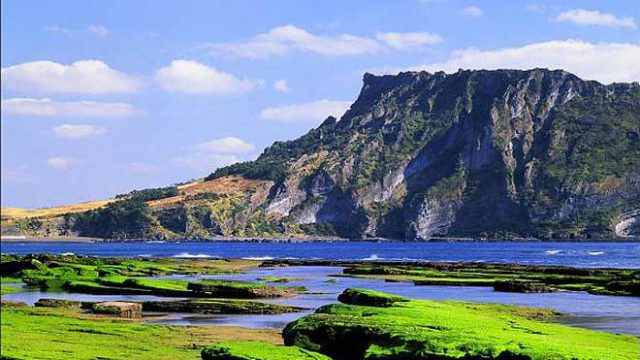The island of Jeju, an hour’s flight from Seoul, attracts hordes of Korean holidaymakers, particularly honeymooners and schoolchildren on field trips, for its enticing combination of volcanic mountain and beach.
Indian travellers might enjoy an excursion to Jeju while on a holiday in South Korea as a change from the intensity of Seoul. But Jeju, which was made a special autonomous area by the Korean government in 2006, has also relaxed visa regulations to encourage international tourism. Indians do not need visas to go to Jeju, as long the island is their sole destination. Flights from Delhi and Mumbai start at about Rs. 45,000. The island, a product of volcanic eruptions millions of years ago, is a natural wonder — recognised as such by Unesco — famous for its lava tubes, caves, waterfalls and white sand beaches. The peak of Hallasan, Korea’s tallest mountain, can be seen from everywhere on the island. It’s a relatively easy day hike to the top of the mountain, with its lovely crater lake. It’s one of the many scenic delights in Jeju.
Deceptively large — about three times the size of Seoul — Jeju has a distinct culture and cuisine. It’s hardier, more austere, respectful of nature’s beauty and also its power. That tough, modest life is epitomised by the resident haenyo (the women), most of them senior citizens, who dive into the cold waters to forage for abalone and conch that are exported to Japan. It’s a matriarchal society, because of the haenyo, but also because of the thousands of men who were killed in a failed rebellion against the US-backed Korean government in 1948. There’s a deep belief in indigenous spirits that are said to govern the island — the ubiquitous ‘stone grandfathers’ that are found all over Jeju. The island also has wild horses, short and muscular, domesticated versions of which are available for tourists to ride.
The island retains a laid-back, beach town feel, with kids on surfboards and couples strolling on the sands. Among the most popular attractions is Love Land, a sexually frank sculpture park. Apart from giggling couples, and families with young children, busloads of Korean and Chinese pensioners can be found casting a stoic eye over massive stone genitalia. Love Land is graphic and erotic but also humorous and innocent. It’s a little like Jeju, beautiful and endearingly weird. Indian tourists have still not joined the rest of Asia in flocking to this island paradise, but that should change soon.




